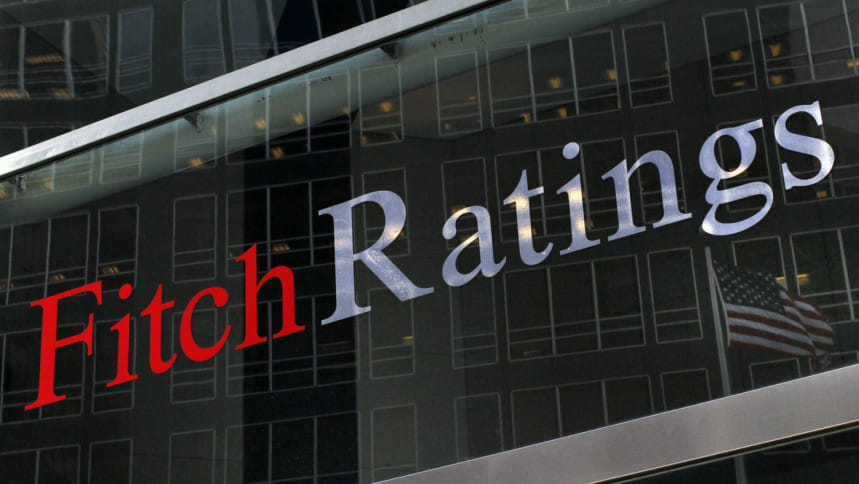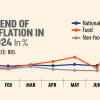Fitch flags risk to Bangladesh after Trump tariffs

Bangladesh is among several Asia-Pacific economies at risk of credit pressure from escalating US tariffs, Fitch Ratings warned yesterday, as trade tensions continue to rattle global markets.
In a report released from its Hong Kong office, the rating agency said the US tariff hikes will weigh on the credit profiles of many sovereigns in the region, particularly those with high external debt and limited foreign exchange reserves.
Bangladesh (B+/Stable), along with Vietnam and Sri Lanka, was singled out as having "relatively low external buffers". These countries may come under further strain if export earnings decline and central banks are forced to defend their currencies, according to Fitch.
For these nations, that risk is "credit negative".
"Foreign-exchange reserves could shrink if authorities intervene to support their currencies in the face of market pressure to depreciate following the tariff increases," Fitch said.
Fitch said those nations' vulnerability stems from their narrow external buffers and the potential impact of a stronger US dollar, which could raise the cost of servicing foreign-currency debt. While a weaker exchange rate could help preserve price competitiveness in the US market, it could also magnify debt burdens for countries with sizable external liabilities.
The report comes as part of a broader assessment of Asia-Pacific sovereigns, many of which are highly exposed to global trade.
"APAC's high trade openness and exposure to US demand leave it particularly exposed to US tariff risks," Fitch said.
The agency said export-oriented growth models across the region, including in China, Vietnam, Taiwan, Thailand and South Korea, face direct threats from the evolving trade environment.
Although the US imposed a 10 percent tariff on most imports, lower than the 15 percent rate Fitch had assumed in its March Global Economic Outlook, the effective tariff on China exceeded expectations. Meanwhile, temporary exemptions, such as one granted on April 11 for some electronics goods, may offer brief relief to affected economies.
Still, the outlook remains clouded by uncertainty. "Tariff rates remain very volatile," Fitch said, adding that full implementation of the April 2 tariff measures, largely paused on April 9, would significantly increase the economic and credit impact for APAC countries.
Fitch also flagged limited fiscal headroom for many governments in the region. While countries like Singapore, Taiwan and China could deploy fiscal support without endangering their ratings, others like Indonesia and Thailand may face greater pressure due to high debt and modest consolidation since the pandemic.
Fitch warned that prolonged fiscal loosening in response to trade shocks could weaken sovereign ratings over time.
"Sustained large-scale fiscal loosening could put downward pressure on some ratings, particularly if it led to a change in fiscal strategy over the medium term," Fitch said.
Interest rate cuts may follow as governments try to cushion the blow from weaker exports, lower domestic demand, and subdued inflation. While this could ease debt servicing costs for countries relying on local markets, Fitch cautioned that looser credit policies might worsen existing leverage problems.

 For all latest news, follow The Daily Star's Google News channel.
For all latest news, follow The Daily Star's Google News channel. 








Comments